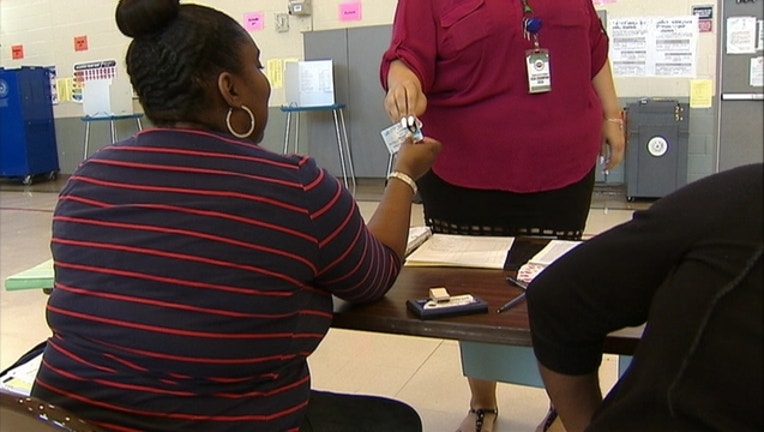Texas, Trump administration seek to delay voter ID hearing

AUSTIN, Texas (AP) - The U.S. Justice Department joined Texas' attorney general Wednesday in asking a federal court to delay a hearing on the state's voter ID law, the latest signal that the federal government might drop its opposition to the law now that Donald Trump is president.
In the joint filing, the Justice Department and Texas Attorney General Ken Paxton asked to delay next Tuesday's hearing until summer because the Texas Legislature is considering changes to the existing law, which a federal court has found to be discriminatory. Barack Obama's Justice Department had joined the lawsuit contesting it.
Senate Republicans this week introduced a revised voter ID bill that could address problems courts have identified with the existing Texas law, namely the lack of an affidavit process for voters who are unable to obtain one of seven forms of state-approved photo identification.
Last year, U.S. District Judge Nelva Gonzales Ramos required Texas to allow people without an accepted ID to vote by signing a sworn declaration stating they have a reasonable impediment to obtaining one. Twenty Senate Republicans backed a bill that would make the affidavit option permanent and would also create stiff criminal penalties of two to 10 years in prison for lying on a sworn declaration. Lt. Gov. Dan Patrick has made the legislation a priority.
In the filing, the Justice Department and Texas asked for the hearing to be pushed back until after June 18, the last day Gov. Greg Abbott has to sign or veto legislation.
"If new Texas state voter identification legislation is enacted into law, it will significantly affect the remainder of this litigation," Texas and the Justice Department argue.
Just hours after Trump was sworn in as president, the Justice Department asked for a January hearing to be delayed to February, saying they needed more time to brief new leadership. Lawyers in the case say it's still too early to know for sure if Trump's Justice Department change positions in the case.
In August, Ramos denied a request from Texas to delay hearings in the case until after the legislative session wraps up in June.
"The question to be determined at the hearing is whether there was intent to discriminate during the legislative session in 2011," said Houston attorney Chad Dunn, who is part of a legal team representing Democrats and minority rights groups challenging the law. "Whatever happens with this bill doesn't address that question."

